 photo:Dr.Naing Aung(left), Ko Moe Thee Zun(right)
photo:Dr.Naing Aung(left), Ko Moe Thee Zun(right)BEYOND 1988 — REFLECTIONS
‘Revolution is Our School, Our University’
By AUNG NAING OO
Saturday, August 16, 2008
1988-1996 — It was Moe Thee Zun, the leader of our ABSDF faction, who came up with the slogan “Revolution is Our School, Our University.” He came up with it after the All Burma Students’ Democratic Front split into two factions.
We thought it was a radical slogan differentiating our group’s identity from Dr Naing Aung’s group. We put it on our group’s letterhead in a blue font, to show we were a different entity.
In fact, there weren’t many differences between the two factions, which were almost the same in terms of ideology and tactics. Many of our ethnic minority colleagues didn’t believe that we had actually split. The late Gen Bo Mya even told us that we were not two groups, and that we were pretending to have split to fool them.
Indeed, in the Karen National Union a split meant a bloodbath, and we were not killing each other despite the breakup. Adding to their confusion, the Karen and other ethnic leaders often saw the leaders of our two factions talking or cracking jokes together. It was easy to understand where the ethnic leaders were coming from, given their often bloody history.
The meaning of the slogan—considering the revolution as a school, a place of learning—was actually true. My formal university schooling had taught me what I could learn from books, such as philosophy, history, etc. I didn’t learn much from compulsory political science lectures, which were all about the “Burmese Way to Socialism.”
But the 1988 uprising and my latter life in the jungle—though short—taught me things I could not experienced at a university. For instance, we experienced democratic elections in the camp for the first time, we ran the camp in spite of hundreds of unruly students and we saw the modern, outside world for the first time.
But in the jungle, at first, all we knew was based on formal education so we established a large school, calling it “Jungle University,” and created courses on such practical topics as organizing, nursing, languages and history, all taught by university lecturers and PhDs who had fled to the border. They were essential to our work, and I had the honor of being named to head the school.
My real learning started with the trek to the jungle—our own version of the “long walk to freedom.”
The jungle was where many of us ethnic Burmans from the country’s heartland had our first taste of Burma’s civil war—a war that not only pitted ethnic soldiers against the Burmese military but also saw ethnic groups, like the Mon and Karen, fight each other. Indeed, it was a rude awaking for some students who had escaped from the military dragnet after the military coup on September 18 only to be caught up in the fight between the Mon and the Karen in the Three Pagoda Pass area.
The jungle was where we Burmans learned what it was like to be a minority. We witnessed their suffering first hand—a tragic mix of poverty, lack of education and displacement. I learned that forced labor was real and brutal, meeting many people who had escaped such cruelty.
Coming from a “white area” where porters for the army were paid, and there was no forced labor, it was hard to swallow the reality of forced labor in conflict zones.
Young and idealistic, many of us had thought the revolution was pure and noble and that the people who sacrificed for it all had admirable moral characters.
Within a week or so, I learned that it was not so. My first disappointment was not with the bad food or the cramped quarters, but one man I saw among our ranks from Pazun Daung in Rangoon, where I used to live while at the university.
His father had supported a monastery near where I lived, but the son was a criminal who was often in and out of prison. He came to blows once with the students living in the monastery who could not abide his ridiculing the monks. We all knew of his drug peddling and theft in the neighborhood.
About ten days after I arrived at Thay Baw Boe market on the border—while standing on the hilly part of the main road—I spotted this unsavory character in a crowd at the foot of the hill. Stunned, my immediate thought was, “Oh, My God! Our revolution is finished.” Fortunately, I only saw him a few more times before he disappeared.
Much later, I learned I was not the only one who was disappointed with the presence of such unholy characters. It dawned on me that many of my new friends also had similar reactions when they saw unsavory classmates—notorious womanizers, druggies or those with questionable character—who showed up on the border. Such people made all of us fear for the future of our cause.
After things settled down in the jungle and we learned that revolution was not so pure, we humbly accepted that each one of us—druggies, womanizers, ordinary citizens, students, leftists, democrats, monks and even coolies—contributed to the 1988 uprising. The uprising and the jungle life taught us to understand engrained social prejudices. We learned to work with those whom we once hated or did not want to be identified with.
The jungle was where I also earned my first real lesson about the environment, the effects of its destruction and the damaging impact of plastic. I learned simple things such as not to use trees for rifle practice or to throw knifes at them because they are living things just as we are. I liked trees, but I hadn’t paid much attention to them before the jungle life.
And I was not aware of human rights before 1988. I am certain I wasn’t the only one. During the uprising, we called for the return of democracy and demanded our rights. But I don’t remember any placard demanding human rights. I knew about rights, but we had not heard of the new phrase “human rights.” Call me naïve, but I was partially a product of socialism. Like my fellow countrymen, I had not had a chance to look out the window to what was happening in the broader world.
Another thing I learned in the jungle was the existence of NGOs or nongovernmental organizations. I had never heard of them, before but I thought it was neat idea to have organizations like these so that they could help people in situations where governments were slow to respond.
Also, I must admit I did not know the real meaning of democracy. At the height of the political upheaval when my cousin asked me what democracy meant, I had to look it up in the dictionary. Like my hometown friends, I was hugely surprised and embarrassed when a friend that we all considered stupid— because he kept failing the high school exam—talked about democracy by quoting Abraham Lincoln’s “by the people, for the people.”
The two ABSDF factions were reconciled in 1996, and the unification taught us the essence of compromise in a democratic setting.
Indeed, along with everything else, the 1988 uprising and our life in the jungle taught me to be humble and to value the contribution of each and ever person for change. Like Moe Thee Zun proclaimed, our revolutionary effort and resistance indeed was a school, a university that prepared us for the unknown road ahead—a long march, if you will—for a polity we still seek to create in our country.
www.irrawaddy.org





















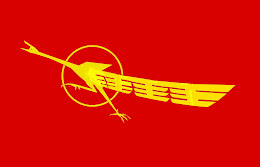





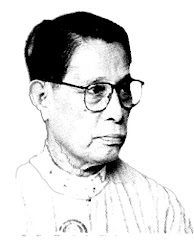


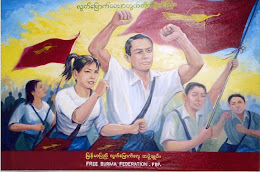





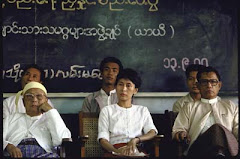

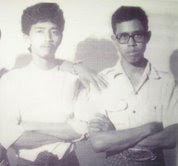

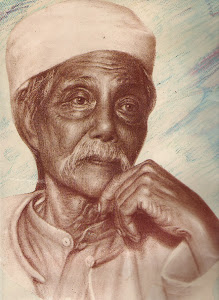
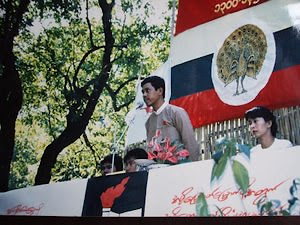
No comments :
Post a Comment